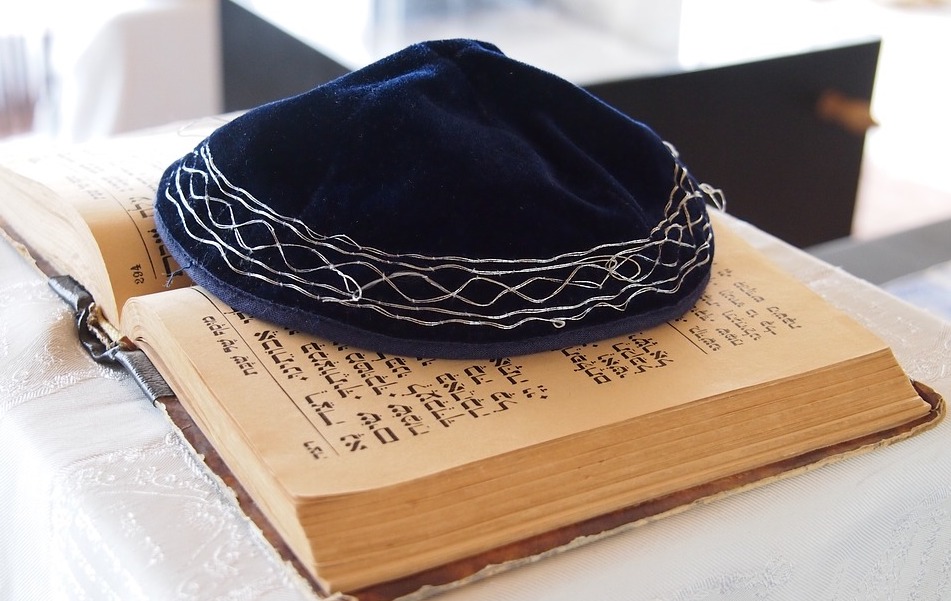“Dear Rabbi” is Ha’Am’s advice column. Every month, Ha’Am will ask one question posed by our readers to five UCLA Jewish leaders: Rabbi Aaron Lerner, Rabbi Alex Kress, Rabbi Naftali Hanfling, Rabbi Dovid Gurevich, and Sharona Kaplan. Their answers will be posted in the column. To have your question featured, please submit it at tinyurl.com/haamadvice.
Rabbi Lerner:
The question as posed could be rewritten: should we act differently in response to others’ behavior? In general, the answer is ‘no.’ The imperatives and joys of Jewish life remain generally the same whether we are amidst good times or bad. We make kiddush on Friday night. We sing. We celebrate birth, mourn death, and try to live each day as fully and righteously as possible. We might put a security guard at the door in times of trouble, but what happens inside should not be undermined by others’ hate. This came across so clearly at the funeral for Lori Kaye z”l who was murdered in Poway. Chabad members, who just the day before had been sheltering in place and fighting off a gunman, were spreading the light. They were putting tefillin on Jewish men (like they do everyday) and preaching about the gift of being alive and serving Hashem (like they do everyday). Let’s always live lives that are holy and full of light.
Rabbi Kress:
The recent uptick in antisemitism in the United States has shaken me to my core. In moments when turmoil and uncertainty breed fear, I often fall into a trap of insularity and distrust. But in this particular moment in Jewish history, I think we must fight our urge to build higher walls and focus instead on building longer tables. Antisemitism thrives in the absence of Jews, and cozying ourselves behind a false sense of security will only fuel the fire of hatred.
Rabbi Hanfling:
There are really so many different aspects regarding anti-semitism and our reactions to such. We’ll focus on one at the moment.
Unfortunately we have seen a rise in anti-semitism recently and people are naturally feeling fearful and anxious. It is important that we not be intimidated into silence nor feel that we need to drop our Jewish identities and engagement. At the same time, the push back from the world should make us dig deeper into our Jewish identity and cause us to strengthen and fortify ourselves. It is hard to deal with hatred and hostility to our Judaism when we have only a very superficial understanding of it. Learn more, understand more, what it means to be a Jew and what role you want Judaism to play in your life. The more we learn about and care about it, the more strength it will give us to remain strong, hold on to what is so precious to us, what so many people in every generation tried to rip away from us. We must also come together in unity as we are stronger together.
Let’s show the world we care deeply about it. Wear our Kippah, Light Shabbat Candles, Hang Mezuzahs on our door posts, go to Torah Classes and most of all be proud to be Jewish. Let’s fight with much more light. Am Yisroel Chai.
Rabbi Gurevich:
Anti-semitism is sadly nothing new to the Jewish people. Although we have had much experience dealing with it, we cannot let it define us.
Historically, how have we as Jews dealt with this issue? Take a look at none other than Moses. When observing an Egyptian anti-Semite brutally attacking an innocent Jewish slave, Moses interfered and killed the perpetrator. Commentaries ask, “How?” Perhaps not surprisingly, at least three opinions emerge. One insists that Moses used his fist, others that he picked up a shovel from the construction site. A third answer is that Moses used a holy Divine name to kill the Egyptian.
This three-pronged approach is still useful in 2020. Firstly, we must use our fists to guarantee our physical safety, by increasing security, training to respond in moments of crisis, and maintaining vigilance. The IDF is a prime example of deterrence through force. Secondly, we must use the shovel of coalition building, political lobbying, community strengthening, and building Jewish infrastructure. Last but not least, we cannot ignore who we are and what makes us unique. We have to reaffirm our Jewish pride, celebrate our Jewish identity without intimidation, and observe Jewish traditions and mitzvos. This pride is what helped the Jews remain strong under the most trying circumstances in the past and it will guide us and keep us strong in the future!
Sharona Kaplan:
The Talmud (Megilla 14a) captures the power of anti-Semitism by stating that Haman was more effective than all of the 48 Jewish prophets and 7 prophetesses were in causing the Jewish people to improve.
Haman, in fact, mobilized the entire nation, inspiring unity, fasting and prayer that changed the future of the Jewish people. Evil is a powerful force that can cause victims to cower or encourage leaders, like Esther, to emerge.
When faced with anti-Semitism choose wisely. See it as a call to action that transcends a given situation and invites opportunity for communal leadership and individual intentionality.
Contributors:
- Rabbi Aaron Lerner
- Rabbi Alex Kress
- Rabbi Naftali Hanfling
- Rabbi Dovid Gurevich
- Sharona Kaplan

